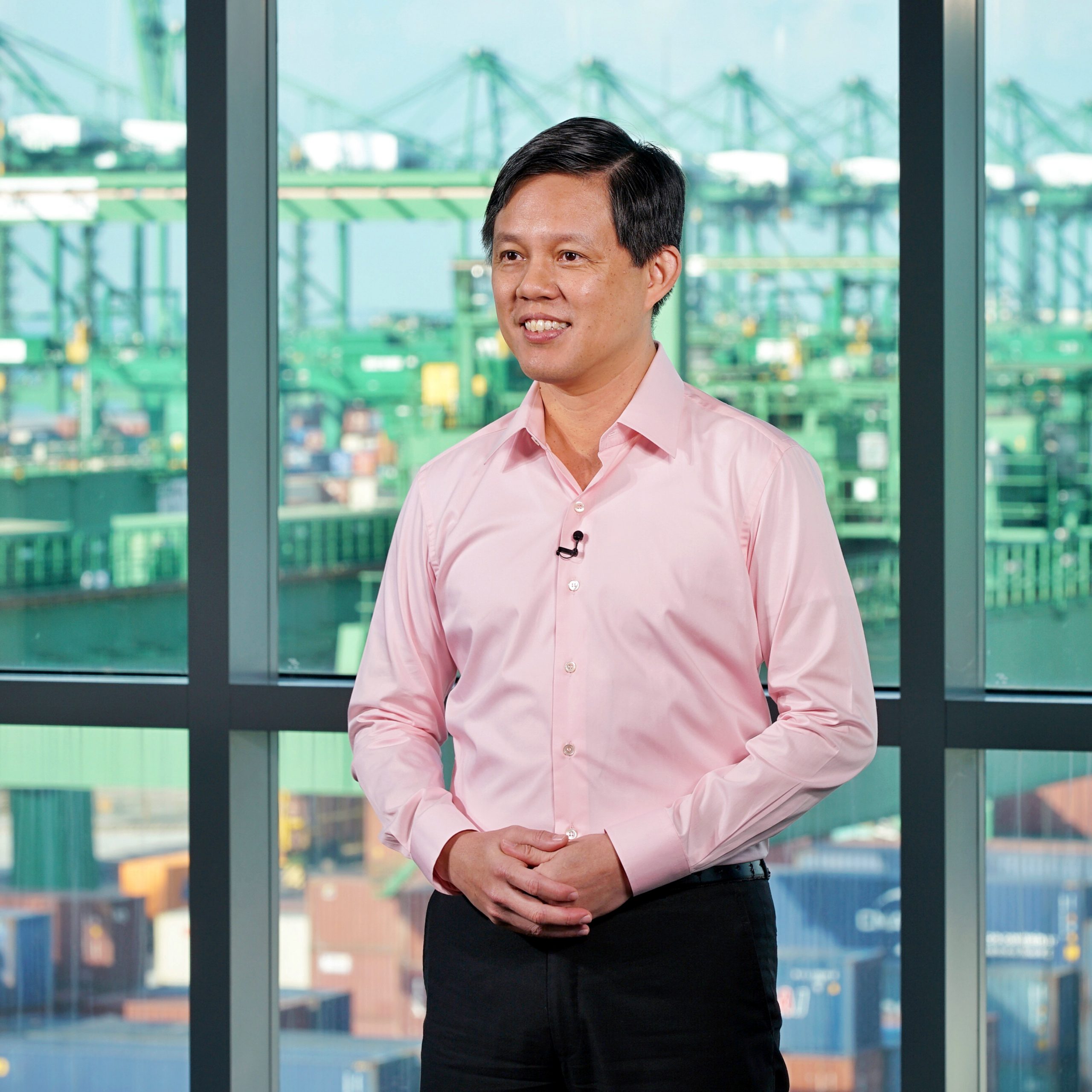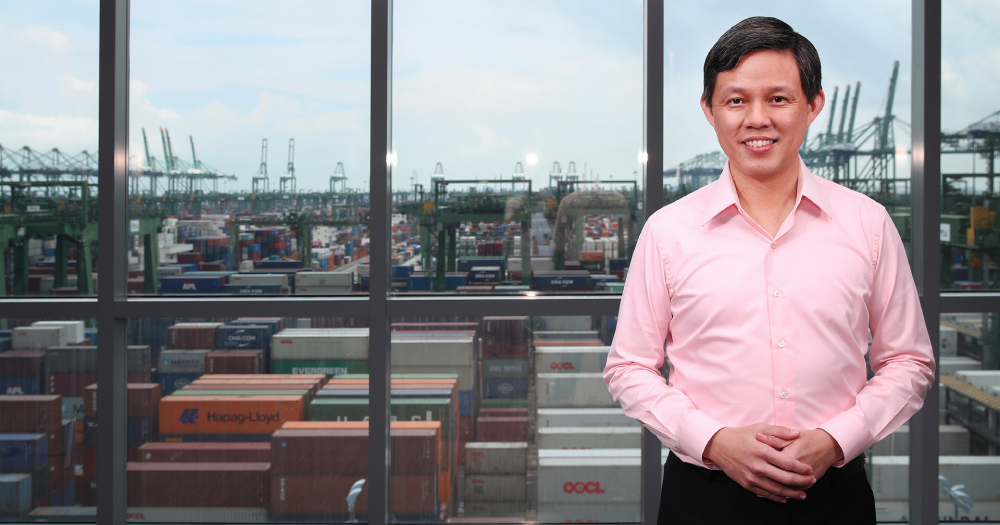The Singapore government will create 100,000 jobs and training opportunities in 2021 to help Singaporeans cope with the impact of the Covid-19 pandemic, Minister for Trade and Industry Chan Chun Sing said in a national broadcast on Sunday evening, June 14.
In the fourth of six ministerial speeches to be broadcast by June 20, Chan said that Singapore is not immune to the adverse effects the pandemic has wreaked on the countries all over.
 Image via Ministry of Communication and Information
Image via Ministry of Communication and Information
Many have lost their jobs & seen their income fall
Chan started his speech, titled "Making a living in a Covid-19 world", by illustrating how the world has been negatively impacted by the pandemic for the past few months.
Many Singaporeans have already lost their jobs, and more job losses are expected in the coming months, he said.
Others have seen their incomes fall, some businesses have closed, and many more are struggling.
To help save businesses and jobs, the government has committed almost S$100 billion.
But it is not just about spending money, Chan said, adding that the ability to plan, adapt and execute is even more important.
He then laid out the plans the government has in store to help Singaporeans get through this trying period.
100,000 new jobs to be created
About 100,000 jobs, which is three times the usual annual number, will be created, according to Chan.
The jobs will include healthcare, early childhood education, transport, information and communications technology, and financial services.
They will help those coming out of schools, and those who are retrenched.
Chan said if the situation worsens, there might be a need to create even more jobs.
The capacity of training institutions will also be increased to equip more workers, especially mid-career ones, with new skills required for the new economy.
Going to where Singaporeans are, job centres will be set up in every town to match displaced workers to new jobs, he said.
"We will work hard to make sure everyone who wants a job can get a job."
Should not expect "business-as-usual"
Chan also reiterated that businesses should not be opened up hastily as they risk closing again if infections spike once more, bringing even more disruption to businesses and workers.
Therefore, businesses should resume "safely, progressively and sustainably."
He added that even after reopening, it would not be "business-as usual".
Government to help businesses after reopening
To cope with the new post Covid-19 world, some businesses will have to change their business models, he said.
Chan also raised the examples of F&B businesses like SaladStop and Beauty in the Pot, which launched delivery-friendly menus to serve their customers.
For those with viable business models, Chan said the government will help them to rebound when demand picks up.
"We will support you to hire and train graduates and mid-career workers in advance," he said, adding that logistics and professional services are examples of sectors where the government is starting to do this.
Preparing for the future
Chan then moved from addressing immediate challenges to the need for preparing for the future, saying Deputy Prime Minister Heng Swee Keat has been doing so by driving the Future Economy Council for the last few years.
He explained that Singapore will invest to develop its "intangible strengths", such as its people, businesses, what distinguishes Singapore from other countries, and the country's infrastructure.
1. Investors chose Singapore for its intangible strengths
Investors have chosen to site and expand their businesses in Singapore for the long-term, not because of reasons like abundant natural resources, or because it is cheaper here, Chan continued.
They have chosen Singapore because of its strengths that are not easy to replicate elsewhere.
Singapore is open & connected
Singapore is open, connected with the world, trusted, as well as united and stable as a society, in addition to having a skilled workforce.
Chan emphasised the need for Singapore to resist the pressures of retreating from globalisation, which is happening for many countries.
This is because a less connected world means a poorer world and fewer opportunities for all, and fewer and poorer quality jobs for Singaporeans should Singapore be less connected.
But Singapore will not be defeated even in a more protectionist, less connected world.
The country can build capabilities to play critical roles in global supply chains to produce high quality products and services that others value, Chan said.
He raised the example of Singapore making four out of the world's top ten drugs.
Our country is also the seventh largest exporter of chemicals.
Singapore's resilience lies in building networks, and diversifying its supply sources and markets.
While many of Singapore’s supply chains were disrupted, if not broken, when lockdowns started across the world three months ago, the ingenuity and tenacity of Singaporeans helped to keep the country going, he said.
“Our public and private sectors swung into action, reached out to their networks, opened new supply lines to bring back essentials like masks, PPE, and test reagents from across the world.”
Chan then thanked the "unsung heroes" that made lives for Singaporeans “normal” in the last few months, such as individuals from the Port of Singapore Authority, Singapore Airlines, ST Logistics, NTUC and Sheng Siong.
Singapore is trusted globally
Another intangible strength is trust, Chan said.
“Throughout this crisis, we have also continued to show the world they can trust Singapore.”
The country did not impose export restrictions or nationalise foreign investments.
Instead, it kept its production lines open for global supply chains, including critical materials for surgical masks.
Singapore also facilitated the continued flow of essential goods and people through its ports and airports, and continued working with companies to increase their production in order to meet both the country's and the world's needs.
“In uncertain times, our trusted brand counts for even more.”
This will help when businesses put us in the running when they make their next investments to diversify their global production bases, he explained.
He raised the example of how Singapore chose not to restrict exports during the 1970s oil crises, which then enhanced the country's credibility to set up Jurong Island as a global petrochemical hub.
A Joint Ministerial Statement issued together with New Zealand to resist export restrictions and uphold global supply chains has also gained more supporters, with 11 subscriber countries and counting.
Chan mentioned the ongoing partnerships Singapore has with other countries as well, such as
- The CPTPP (Comprehensive and Progressive Agreement for Trans-Pacific Partnership), which grew from an initiative started together with Brunei, Chile and New Zealand;
- A network of Digital Economy partnerships that will create opportunities for Singaporean companies to grow in the overseas markets; and
- The RCEP (Regional Comprehensive Economic Partnership) agreement that Singapore looks forward to signing this year
2. Investing in Singapore's infrastructure
Chan said as Singapore develops its intangible strengths, the government will also invest in the next generation of infrastructure for the country.
Singapore's past prudence has given it the means to continue investing in its future, unlike other countries which have to tighten their belts, he said.
Singapore will press on to build its connectivity infrastructure to reinforce the country's position as a business, finance, trade and data flow hub.
Chan continued to say the country's long-term plans remain sound.
There are projects such as
- Changi T5;
- Tuas Mega Port; and
- submarine cable hubs.
And regional developments like
- Punggol Digital District;
- Jurong Lake District;
- Sungei Kadut Eco-District; and
- Greater Southern Waterfront.
While the government will pave the timeline of the projects according to demand, Chan reassured Singaporeans that they will all be completed.
"Together, they will create a vibrant and innovative Singapore for our children – full of opportunities, full of life."
Intensify efforts to attract best ideas and talent to Singapore
Chan also said the government will "intensify the efforts" to attract the best ideas and talent to compete on the side of Singapore, and complement its strengths.
"We will make ourselves a more attractive safe harbour for talent, ideas and intellectual property, to grow more businesses and create better jobs.
Competition is intense. Talented people, including our own, can go anywhere."
Chan also reassured Singaporeans who are concerned with foreign competition by saying the government will give local workers the training and support to excel, and ensure that the competition is fair.
Nevertheless, he emphasised that closing ourselves up is not the answer.
"We cannot escape competing with the world, and proving our mettle."
Enabling every Singaporean to go digital
Chan then said beyond investments in intangibles and infrastructure, the government will ensure that "every member of Team Singapore shares the benefits of growth".
To do this, the government will help Singaporeans to go digital and international.
While the Covid-19 pandemic has pushed many businesses and consumers to embrace the digital world, the digital trajectory will only accelerate, and not reverse, Chan said.
"We must enable every Singaporean, young and old; every business, big and small, to go digital and thrive."
Chan said companies could use digital tools to create new business models, and transcend local market constraints, such as the Singapore Tourism Board, which helped local hospitality companies and event organisers overcome the collapse in travel demand by using digital tools.
Going digital has helped many Singapore businesses establish regional and global presence as well, often in partnerships, he said.
He gave the example of CapitaLand bringing along Singapore companies in its overseas development projects, thus helping them enter new markets.
Saying that Singapore's business leaders and workers will be key to these efforts, Chan added that Singapore must have the aptitude and attitude to serve global markets.
"Our people must have the entrepreneurial spirit to venture abroad to compete, and seize the opportunities of a fast-growing Asia.
We cannot be content with doing well just within Singapore."
Intensify Singaporeans' overseas exposure
Singaporeans can intensify their overseas exposure through initiatives like the Global Ready Talent Programme, where they can gain fresh perspectives and networks, Chan said.
For instance, as part of the NUS Overseas Colleges programme, Carousell co-founders Siu Rui, Marcus and Lucus spent a year in Silicon Valley.
Their experience gave them the confidence to launch Carousell later, which was expanded beyond Singapore to eight markets across Southeast Asia today, Chan said.
"We will never be done upskilling our people.
This is especially so for workers who have left school many years ago and did not benefit from the more recent improvements in our education and training system."
Government will support Singaporeans in improving themselves as long as they are willing
The government's promise to Singaporeans is that they will create opportunities for all Singaporeans to improve their lives at every stage of their careers, Chan said.
"So long as you are able and willing, we will support you."
Chan ended his speech by saying 55 years on since the nation's Pioneer and Merdeka Generations built the economy from scratch and laid the country's strong foundation, Singapore is now better positioned to keep itself going.
"We will build a better Singapore together, where our future generations have the pride, the means, and the gumption to be called Singaporeans."
You can watch the entire speech here:
Top image via Ministry of Communication and InformationIf you like what you read, follow us on Facebook, Instagram, Twitter and Telegram to get the latest updates.
